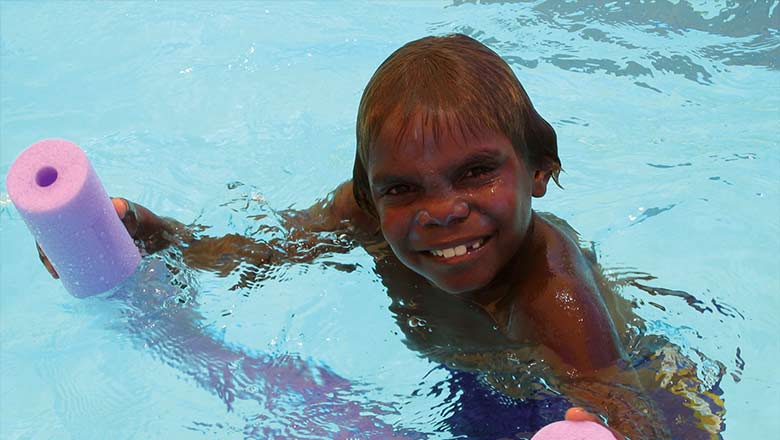Search
News & Events
It’s Time – new video on the Apology to the Stolen GenerationsIt's Time - new video on the Apology to the Stolen Generations
News & Events
Genetic analysis reveals range of Rett syndromeThe first comprehensive analysis of the clinical effects of genetic mutations involved in Rett syndrome
News & Events
Study shows dramatic increase in caesarean sectionsA new study has found that the rate of caesarean sections in Western Australia has almost doubled in a 20 year period to 2003.
News & Events
Perth researchers to trial bird flu vaccinePerth researchers have begun a trial to test the effectiveness of a new vaccine to protect against the potentially deadly bird flu.

News & Events
Remote pools boost Aboriginal child healthA comprehensive study into the impact of swimming pools in remote Aboriginal communities has found significant health and social benefits for children.
News & Events
Sugary drinks in the spotlightAt The Kids, many of our studies have uncovered significant health risks associated with both high sugar drinks and energy drinks.
News & Events
Trying to beat asthma caused by exerciseProfessor Graham Hall is leading a study looking at exercise-related asthma in young children, and we need volunteers to take part.
News & Events
Social disadvantage the focus for WA child health researchersResearchers from The Kids will play a significant role in investigating - and breaking - the generational cycle of social disadvantage.
Research
Compound Repurposing Into Novel Therapeutics In COVID-19 At risk Lungs (CRITICAL Study)Anthony Christopher David Ingrid Shannon Thomas Kicic Blyth Martino Laing Simpson Iosifidis BSc (Hons) PhD MBBS (Hons) DCH FRACP FRCPA PhD BSc PhD
Research
Does Repeated Influenza Vaccination Constrain Influenza Immune Responses and Protection?Christopher Blyth MBBS (Hons) DCH FRACP FRCPA PhD Centre Head, Wesfarmers Centre of Vaccines and Infectious Diseases; Co-Head, Infectious Diseases
